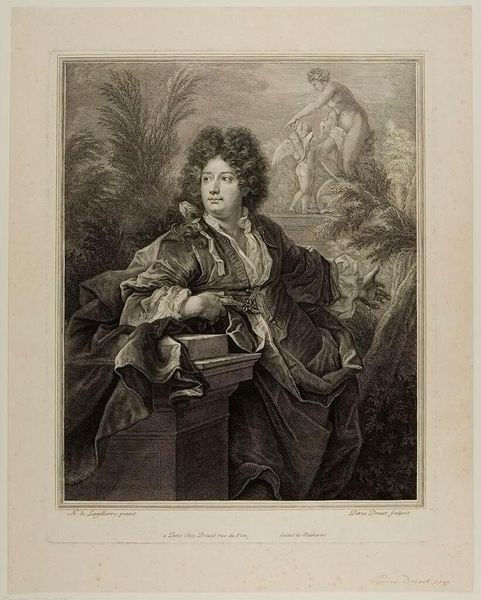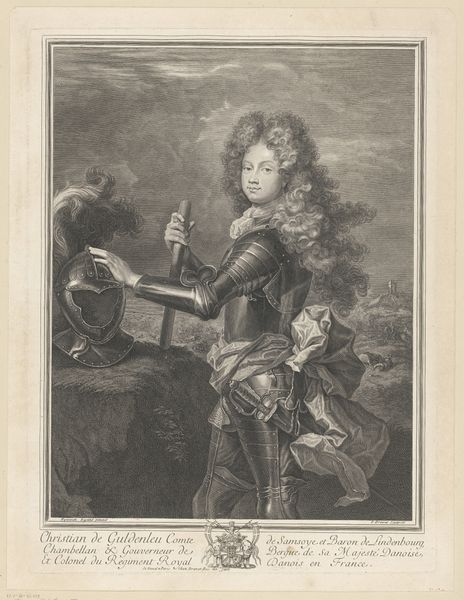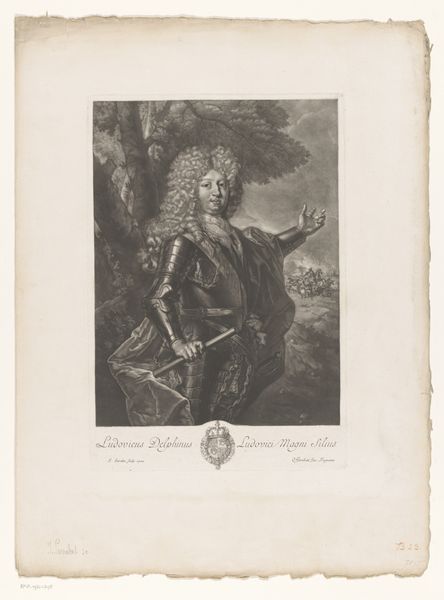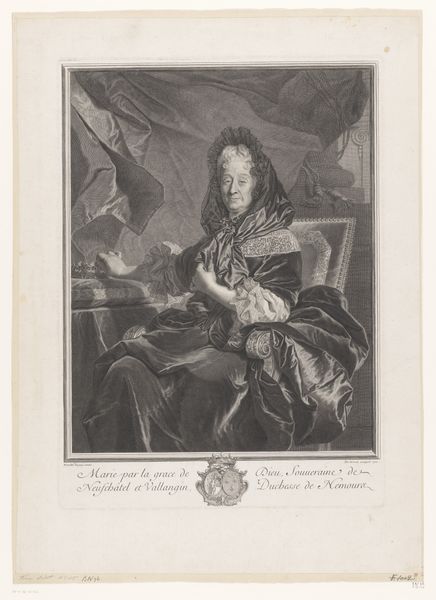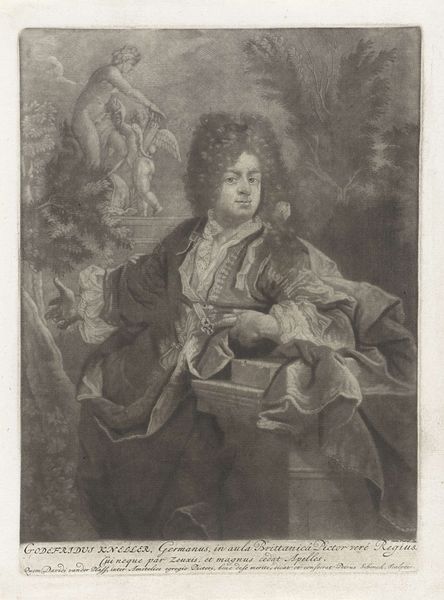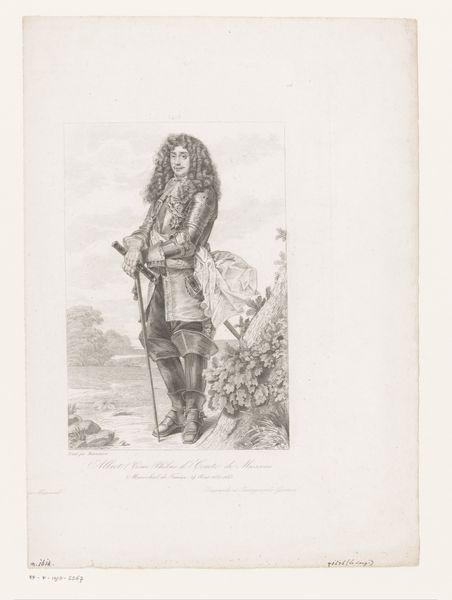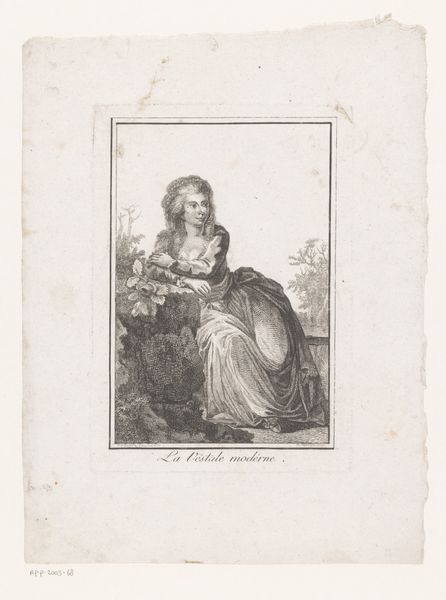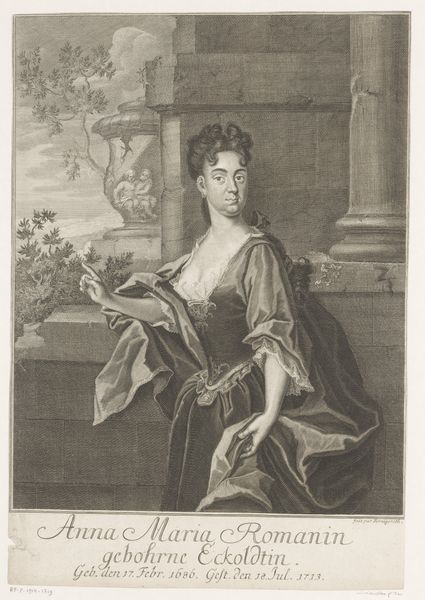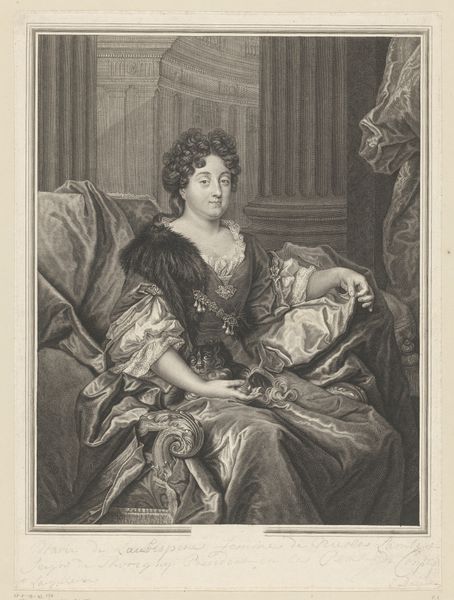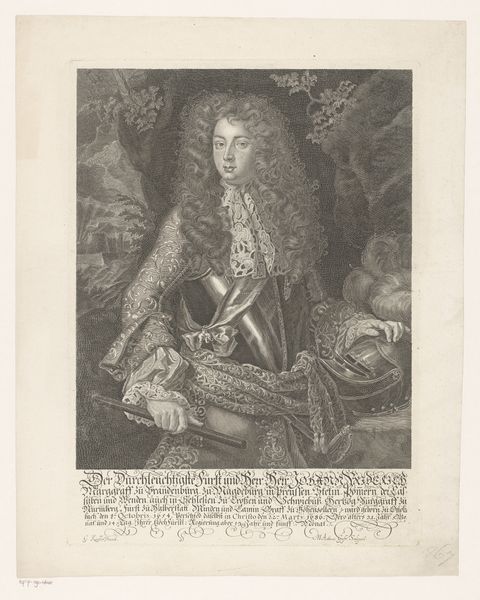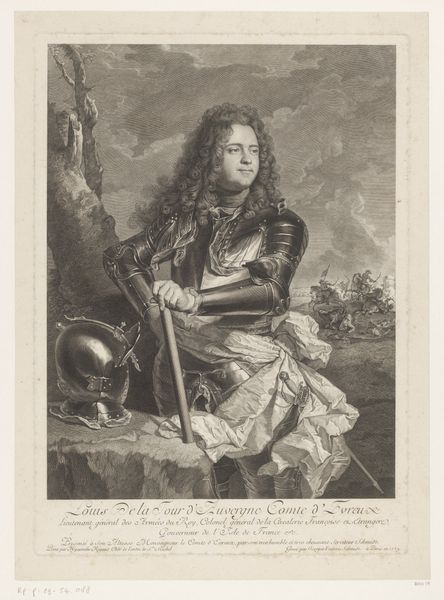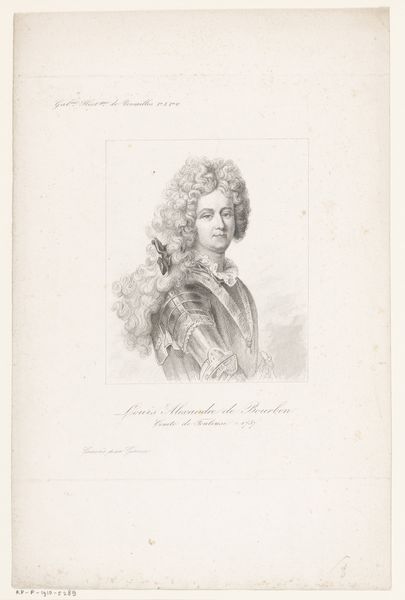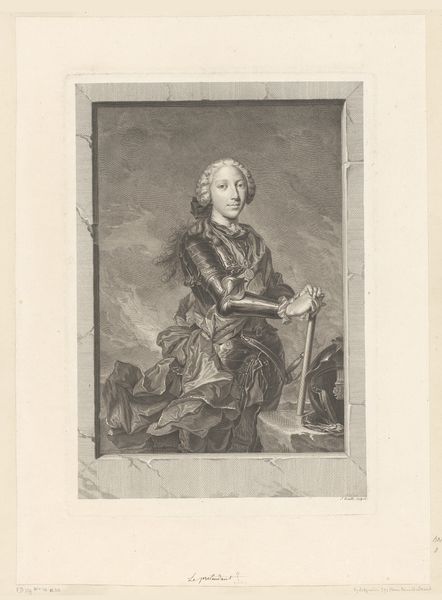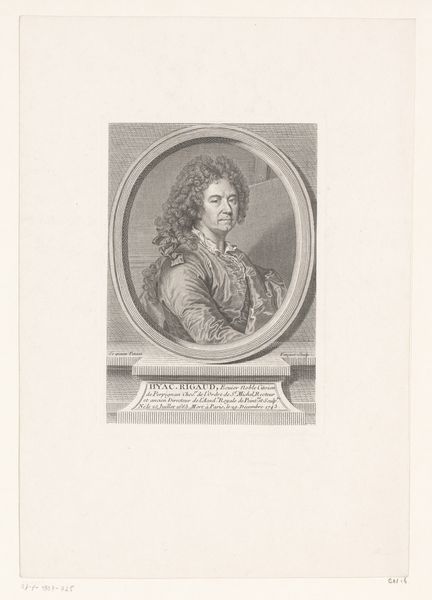
print, engraving
#
portrait
#
baroque
# print
#
history-painting
#
engraving
Dimensions: height 459 mm, width 359 mm
Copyright: Rijks Museum: Open Domain
Editor: So this is "Portret van Jean-Martin Mitantier," an engraving by Pierre Drevet from 1692, housed at the Rijksmuseum. There's a lot going on! The man is the focus, but there's an allegorical scene behind him. I'm intrigued by that scene and how it plays into the overall message. How do you interpret this work, with its portrait and symbolic backdrop? Curator: Notice how Mitantier isn't simply presented in isolation. Drevet strategically positions him against this classical tableau. Do you recognize the figures? This backdrop alludes to learning and eloquence. Notice the woman placing a wreath on the head of the cherubic figure. Now, look at Mitantier himself. His gaze is knowing, almost challenging. The book beneath his hand and the background iconography are deliberate choices that speaks volumes about his profession as Secretary of the King. Editor: Ah, I see. So it's about conveying his status and intellect through these carefully chosen symbols. Is that a common approach in portraiture of this period? Curator: Absolutely! Consider the visual language: the baroque era embraced drama and overt symbolism. The choice of engraving, the lines, and the contrast all contribute to the story being told about the sitter, crafting a public persona intended to resonate with viewers familiar with these visual cues. Even his hair…! It indicates someone with access to luxury. Editor: It’s fascinating how much information is packed into a single image. I will certainly pay more attention to visual language moving forward! Curator: And to how artists connect personal identity with larger cultural narratives. The symbols used really offer insight into how people perceived themselves in that period.
Comments
No comments
Be the first to comment and join the conversation on the ultimate creative platform.
